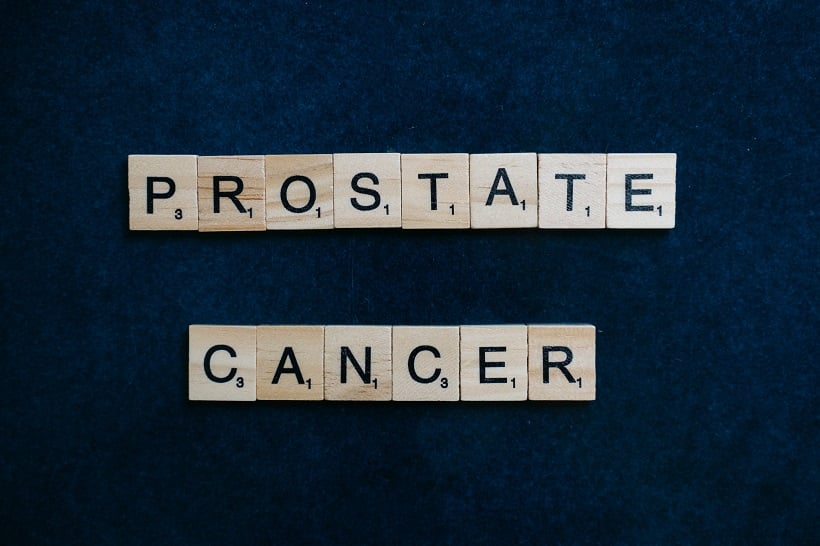Prostate and Testicular Cancer Blog | 13th November 2023
Published on 13 November 2023 10:20 PM
This year is the 20th anniversary of Movember; a movement that raises awareness for men’s health throughout November. This is usually done by men growing out the most impressive moustache they can - every moustache is a conversation starter for men’s health!
On average, men die 4.5 years earlier than women; and most of these deaths are preventable. Movember aims to help men to live happier, healthier, longer lives.
This year, the three main Movember campaigns are; mental health and suicide prevention, prostate cancer, and testicular cancer. 1 in 8 men are diagnosed with prostate cancer in the UK, and testicular cancer is now the leading cause of cancer in younger men.
There are many ways you can help or take part – for instance, by encouraging men to be proactive about their health. You might like to sign up to grow a moustache, walk or run 60 km over the month – 60 to signify the number of men lost every hour to suicide around the world – gather friends and family or create your challenge, perhaps a physical challenge!
Let’s look closely at one of Movember’s main campaigns:
PROSTATE CANCER. Prostate cancer is prevalent, with around 48,600 men diagnosed each year in the UK.

Who is most at risk?
Prostate cancer is most common in men over 65 and less common in those under 50, but can still occur, especially for those with a strong family history. You are two and a half times more likely to get prostate cancer if your father or brother has had it, and your risk may increase if your mother or sister has had breast cancer or ovarian cancer too. This is because you may have inherited the same faulty genes, therefore you could develop hereditary prostate cancer.
Black men are twice as likely than white men to get prostate cancer, and at a younger age. This is thought to be linked to genes. According to our latest research, more than one in three black men don’t like to openly express their feelings and one in four feel uncomfortable talking about their concerns. Being open about health worries is so critical, with 1 in 4 black men now developing prostate cancer in their lifetime.
How can I lower my chances of getting prostate cancer?
While there isn’t much you can do about your age, ethnicity or family history, remember that there are everyday lifestyle changes you can still make to try to reduce your risk. There is strong evidence that smoking is linked to aggressive prostate cancer. If you stop smoking, your risk should start to fall, and after 10 years, it can be as low as for individuals who have never smoked! You are more likely to quit for good if you use a stop smoking service, so ask your GP surgery about this.
Being overweight or obese is the second biggest preventable cause of cancer after smoking. You’re more likely to develop prostate cancer or have metastatic or advanced prostate cancer if you are overweight or obese. Metastatic prostate cancer is a cancer that begins in the prostate and has spread to another part of the body. The best way to achieve a healthy weight is by being active regularly and eating a balanced diet.
If you are over 50 and worried about your prostate cancer risk, ask your GP about tests for prostate cancer. If you're over 45 but have a higher risk of prostate cancer because of family history or being black, you should discuss this with your GP too.
What are the different signs and symptoms?
Prostate cancer does not usually cause any symptoms in the early stages, because the cancer needs to be big enough to press on the urethra (the tube that carries urine from the bladder to the penis) for symptoms to show. However, here are some signs to know about:
- Needing to pee more frequently, often during the night.
- Needing to dash to the toilet.
- Difficulty in starting to pee (hesitancy).
- Straining or taking a long time while peeing.
- Weak flow.
- Feeling like your bladder has not fully emptied.
- Blood in urine or semen.
These symptoms do not always mean you have prostate cancer but must still be checked out, so you should not delay seeing your GP. The earlier that cancer is caught, the more likely it is to be curable. Survival for prostate cancer is generally good, particularly if you are diagnosed early. Signs that prostate cancer may have spread include; bone or back pain that does not go with rest, a loss of appetite, tiredness, pain in the testicles, or unexplained weight loss.
We are here for you:
Please have a look at the Macmillan prostate cancer forum for anybody affected by prostate cancer, whether it’s you or someone you know with a diagnosis. Use this space to share your experiences, talk to people who understand how you’re feeling, and ask any questions you might have. There can be discussions around treatment options, side effects or anything else that’s playing on your mind.
Being diagnosed with cancer can feel daunting but know that you are never alone. Find support in your local area here.
Actor, Colin MacFarlane was diagnosed with prostate cancer last year, nine months after his brother was too, and says: “I think most men try to ‘stay strong and silent’, but other men need to see that it’s OK to let your guard down and show anxiety and fear. Vulnerability is a strength, not a weakness.”
Now let’s talk about TESTICULAR CANCER
While prostate cancer is seen more in older men, testicular cancer tends to affect younger men and is the most common cancer in 25 – 40-year-olds. Another difference is that white men are at higher risk of testicular cancer than men from other ethnic groups. Around 2,300 men are diagnosed with testicular cancer each year, and this number has roughly doubled from fifty years ago!
How to examine yourself:
It is crucial to get to know your body and what feels normal for you. You should check your testicles for any changes regularly from puberty onwards. As with most cancers, the earlier you treat testicular cancer, the better the outcome.
Never put off seeing your GP if you see or feel any changes – they are used to seeing patients about this and it is not something to feel ashamed of.
It can often be easier to check the testicles during, or right after, a warm shower or bath because the scrotal skin is relaxed then. Hold the scrotum in the palm of your hand. Use your fingers and thumb to examine each testicle. A normal testicle should feel smooth and firm, but not hard. You are feeling for any lumps, swellings, differences between the testicles or anything else that looks or feels unusual for you. It is normal for the testicles to be slightly different in size, or for one to hang lower than the other.
Here are the symptoms of testicular cancer:
- Painless swelling or lump in one of the testicles; this can be about the size of a pea or may be larger.
- Dull ache or pain in your testicles or scrotum, which may come and go.
- Feeling of heaviness in the scrotum.
- Any change in shape or texture of the testicles.
- Increase in the firmness of a testicle.
- A difference in appearance between one testicle and the other.
Most lumps or swellings in the scrotum are not a sign of cancer but shouldn’t be left unchecked. Treatment for testicular cancer is much more effective when started early, so don’t let embarrassment, awkwardness or anything else get in the way of seeing your GP right away. Doctors are used to dealing with these issues, but if you prefer, you could go to your local sexual health clinic rather than your GP. Find your nearest clinic on the NHS website.
For individuals who are trans and non-binary:
If you are a trans woman and have testicles, you may find checking this part of your body more distressing or discussing your body with a healthcare professional, particularly tough. Ensure that you are still checking yourself regularly and getting any changes checked out. Know that there is the option of contacting a gender identity clinic or sexual health and wellbeing service that is trans and non-binary friendly – you can check if this is available in your area on Tranzwiki.
The outlook is often positive!
The good news is that testicular cancer is one of the most curable types, especially when diagnosed early, and survival rates are very high. Just like other cancers, it is not infectious. While treatment almost always includes the surgical removal of the affected testicle, you may be relieved to know that this does not usually affect fertility or your ability to have sex! You should still be able to get an erection or impregnate someone if your other testicle is healthy.
Myths explained:
Having a vasectomy does not increase the risk of getting testicular cancer. There is also no evidence to suggest that injury to a testicle increases your risk of getting testicular cancer. An injury to a testicle or the groin, however, can bring possible symptoms of testicular cancer to your doctor’s attention.
Risk factors:
- Having an undescended testicle as a child increases your risk of testicular cancer. The risk may be higher if you did not have surgery for this.
- If you had surgery to bring down the testicles as a child, you should check your testicles regularly so that you recognise any changes early on.
- Having a brother or father who had testicular cancer gives you a slightly higher risk of getting it.
- If you are HIV-positive, you may also have a slightly increased risk of developing testicular cancer.
You are not on your own
Getting a cancer diagnosis can feel very isolating, but you can visit our testicular cancer forum, a safe space to talk to other people affected by testicular cancer who understand what you are going through. It is free to join and you can share your experiences or ask an expert any questions you may have.
Chat to our specialists online or call the Macmillan Support Line on 0808 808 00 00. It is free to call, and lines are open from 8 am to 8 pm, seven days a week.
While men represent 52% of cancer cases, only 38% of the calls to the Macmillan Support Line come from men. This means men are missing out on getting the support they need, so we need to get more men talking about cancer and seeking support.
That's it for this month, have a great week and let's keep talking and sharing.
